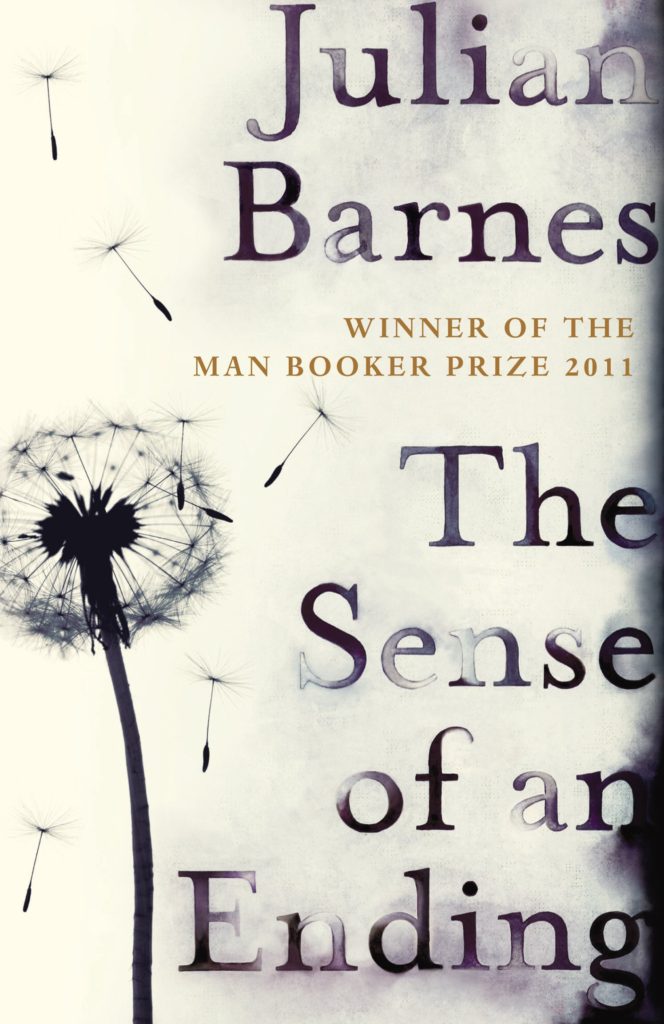The Sense of an Ending by Julian Barnes
Reviewed by Michael Attard
The Sense of an Ending is fiction and a more refined categorization by the Library of Congress has included it under psychological fiction. In my estimation, the book also qualifies as a mystery. The inability to pigeon-hole the book may help explain why it was awarded the Man Booker Prize. I am always skeptical of committees that award prizes, but the book was considered to be the best novel written in English and published in both the United Kingdom and Ireland in 2011.
The protagonist is Tony Webster, and the events are related in the first person. The location is England, and the story begins somewhere in the 1960s. Tony had two close friends, Colin and Alex, but in their last year of high school, a new boy, Adrian, arrived and became regarded as the philosopher of the group. He believed that principles should guide actions. While their lives were prosaic, they desired life as portrayed in literature. They longed for “psychological, emotional, and social truth.”

The story is, for the most part, the recounting of events that occurred many years before. Tony is attempting to be as accurate as possible, but he is troubled by the concepts of time and history, which he fears may be causing him to miss the point of it all – the point of his life, that is. As Tony thinks about, recollects, and analyzes the passage of time, his mind whirls around the concepts of regret, even remorse, wondering if one can receive forgiveness. And how can any history be truth when, as Adrian had put it, “History is that certainty produced at the point where the imperfections of memory meet the inadequacies of documentation.”
When the boys finished school to go their separate ways and to different universities, they of course promised “lifelong friendship.” Tony met Veronica Ford, and their precarious relationship progressed at least to the point where he was invited to meet and stay with the Ford family over a weekend. Tony was given a cryptic warning by Veronica’s mother.
Fifty pages in, we learn of a tragedy. Tony wonders if complications are necessary in life if one is to experience any real depth. But he goes on to conclude that perhaps, “you can have complication and difficulty without any compensating depth or seriousness.”
In a couple of pages, forty years whiz by, but everything seems accounted for. In fact, Tony thinks that things are just fine, until a letter arrives from a lawyer. Tony is thrust, or pulled back, by a powerful gravity into his past, which he had believed, up until then, was well wrapped and safely stored in history. The mystery involves something that is his, although it never was his before. He is entitled to it but someone else has it. He is unsure of its significance, and he could just let it go, but he wants it. And why will this person not give him what is rightfully his?
He later realizes that this metaphorical icon can possibly offer him corroboration. It could be the necessary evidence to put his mind at rest so that he would not need to depend upon an untrustworthy memory in order to understand his life.
But instead of getting what he wants, he receives another letter. The twist is that this is a copy of a letter he had written many years before. Yes, he was young and jealous at the time, but there was no escaping the fact that the letter was ugly. He did not feel that he was now the same person who wrote that letter. “But perhaps this was simply further self-deception.” His “younger self had come back to shock him.” He was feeling, “self-pity and self-hatred.” The past had come back and would not let him go peacefully. He began to believe that life is meant to wear us down, proving “that life isn’t all it’s cracked up to be.”
Tony meets a group of people, and even though he was taken to them, he has no idea as to why he was meeting them. But something drew him back to the place over and over again. Sometimes he would see them and other times he would not. But the mystery of why he could not simply be given what was his somehow involved this group. And this determination to acquire his rightful property “had morphed into something much larger.”
Then what was bound to occur happened. It was not a scientific or religious breakthrough, yet still, it was an epiphany. The past looked him straight in the face. Although the story is not quite done yet, only revealing the last surprise on the third to last page.
The book, like many philosophical adventures perhaps, poses more questions than it answers. But it is an easy read imbedded with humor and interesting turns of phrase. I am all for honesty when examining one’s life, but Tony seems to engage in self-flagellation. Although, as the famous dictum attributed to Socrates says, “the unexamined life is not worth living,” so I enjoyed the challenge that Julian Barnes has presented.
The Reviewer
Michael Attard is a Canadian who has lived in Gwangju since 2004. Though officially retired, he still teaches a few private English classes. He enjoys reading all kinds of books and writes for fun. When the weather is nice, you may find him on a hiking trail.





